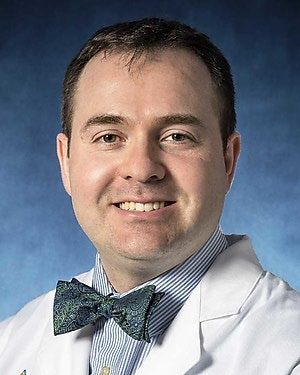Research Lab Results
-
Devreotes Laboratory
The Devreotes Laboratory is engaged in genetic analysis of chemotaxis in eukaryotic cells. Our long-term goal is a complete description of the network controlling chemotactic behavior. We are analyzing combinations of deficiencies to understand interactions among network components and carrying out additional genetic screens to identify new pathways involved in chemotaxis. A comprehensive understanding of this fascinating process should lead to control of pathological conditions such as inflammation and cancer metastasis. -
Dmitri Artemov Lab
The Artemov lab is within the Division of Cancer Imaging Research in the Department of Radiology and Radiological Science. The lab focuses on 1) Use of advanced dynamic contrast enhanced-MRI and activated dual-contrast MRI to perform image-guided combination therapy of triple negative breast cancer and to assess therapeutic response. 2) Development of noninvasive MR markers of cell viability based on a dual-contrast technique that enables simultaneous tracking and monitoring of viability of transplanted stems cells in vivo. 3) Development of Tc-99m and Ga-68 angiogenic SPECT/PET tracers to image expression of VEGF receptors that are involved in tumor angiogenesis and can be important therapeutic targets. 4) Development of the concept of “click therapy” that combines advantages of multi-component targeting, bio-orthogonal conjugation and image guidance and preclinical validation in breast and prostate cancer models.
-
Douglas Ball Lab
The Douglas Ball Lab conducts clinical trials and pre-clinical laboratory studies of thyroid cancer. Our clinical trials, performed in collaboration with research staff in the upper aero-digestive group in the Sidney Kimmel Comprehensive Cancer Center, have included protocols for advanced radioiodine-refractory differentiated thyroid cancer and medullary thyroid cancer. Our pre-clinical research, conducted with Dr. Nelkin, Dr. Agrawal and other Kimmel Cancer Center researchers, includes pathogenesis and mechanisms of treatment resistance in medullary thyroid cancer, and pathogenesis and immune-directed therapy of anaplastic thyroid cancer.
-
Drew Pardoll Lab
The Pardoll Lab focuses on the regulation of antigen-specific T cell responses and studies approaches to modify these responses for immunotherapy. Pardoll has a particular interest in cancer immunology and his lab’s studies on basic immunologic mechanisms have led to the development and design of a number of cancer vaccines and discovery of key checkpoint ligands and receptors, such as PD-L2, LAG-3 and neuritin, many of which are being targeted clinically. Our primary pursuits are discovering and elucidating new molecules that regulate immune responses, investigating the biology of regulatory T cells, and better understanding the specific biochemical signatures that allow a patient’s T cells to selectively target cancer cells.
-
Drug Discovery Group
Barbara Slusher, M.A.S., Ph.D., leads a 20-member veteran drug discovery team of medicinal chemists, assay developers, pharmacologists, toxicologists and pharmacokinetic/drug metabolism experts, who identify novel drug targets arising from JHU faculty’s research and translate them into new, small molecule drug therapies. Her team collaborates extensively with faculty at the Bloomberg~Kimmel Institute for Cancer Immunotherapy and leads the BKI immunotherapy drug discovery core, aimed at developing new immune-targeting drug therapies for laboratory and clinical testing at Johns Hopkins. -
Elizabeth M. Jaffee, M.D.
Current projects include: The evaluation of mechanisms of immune tolerance to cancer in mouse models of breast and pancreatic cancer. We have characterized the HER-2/neu transgenic mouse model of spontaneous mammary tumors. This model demonstrates immune tolerance to the HER-2/neu gene product. This model is being used to better understand the mechanisms of tolerance to tumor. In addition, this model is being used to develop vaccine strategies that can overcome this tolerance and induce immunity potent enough to prevent and treat naturally developing tumors. More recently, we are using a genetic model of pancreatic cancer developed to understand the early inflammatory changes that promote cancer development. The identification of human tumor antigens recognized by T cells. We are using a novel functional genetic approach developed in our laboratory. Human tumor specific T cells from vaccinated patients are used to identify immune relevant antigens that are chosen based on an initial genomic screen of overexpressed gene products. Several candidate targets have been identified and the prevelence of vaccine induced immunity has been assessed . This rapid screen to identify relevant antigenic targets will allow us to begin to dissect the mechanisms of tumor immunity induction and downregulation at the molecular level in cancer patients. More recently, we are using proteomics to identify proteins involved in pancreatic cancer development. We recently identified Annexin A2 as a molecule involved in metastases. The analysis of antitumor immune responses in patients enrolled on vaccine studies. The focus is on breast and pancreatic cancers. We are atttempting to identify in vitro correlates of in vivo antitumor immunity induced by vaccine strategies developed in the laboratory and currently under study in the clinics. -
Eugene Shenderov Laboratory
The Shenderov Lab focuses on the elucidation of the mechanisms of immune response and resistance to immunotherapy in Prostate Cancer. This has led to clinical and basic research investigating the presumptive checkpoint inhibitor B7-H3. In pursuit of understanding biomarkers or resistance and response, and regulatory molecules of immune response, we utilize artificial intelligence, immunogenomics, and spatial proteomics and transcriptomics in the laboratory and at the bedside using clinical trial correlative samples. -
Elham Afghani Lab
The Elham Afghani Lab performs clinical research on pancreatic auto islet transplants, pancreatic cancer, pancreatic cysts, and pancreatitis.
-
Eberhart, Rodriguez and Raabe Lab
Utilizing a combination of tissue-based, cell-based, and molecular approaches, our research goals focus on abnormal telomere biology as it relates to cancer initiation and tumor progression, with a particular interest in the Alternative Lengthening of Telomeres (ALT) phenotype. In addition, our laboratories focus on cancer biomarker discovery and validation with the ultimate aim to utilize these novel tissue-based biomarkers to improve individualized prevention, detection, and treatment strategies. -
Youngjee Choi Lab
Research in the Youngjee Choi Lab focuses on ambulatory care, cancer survivorship, high-value care and medical education.




